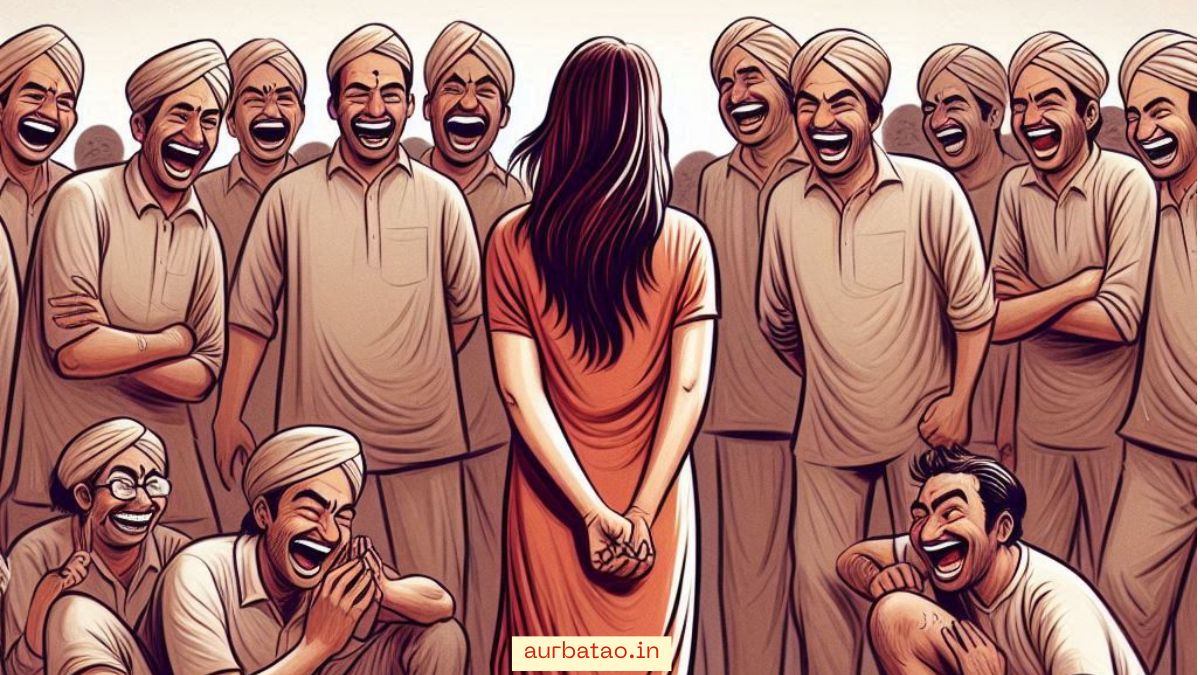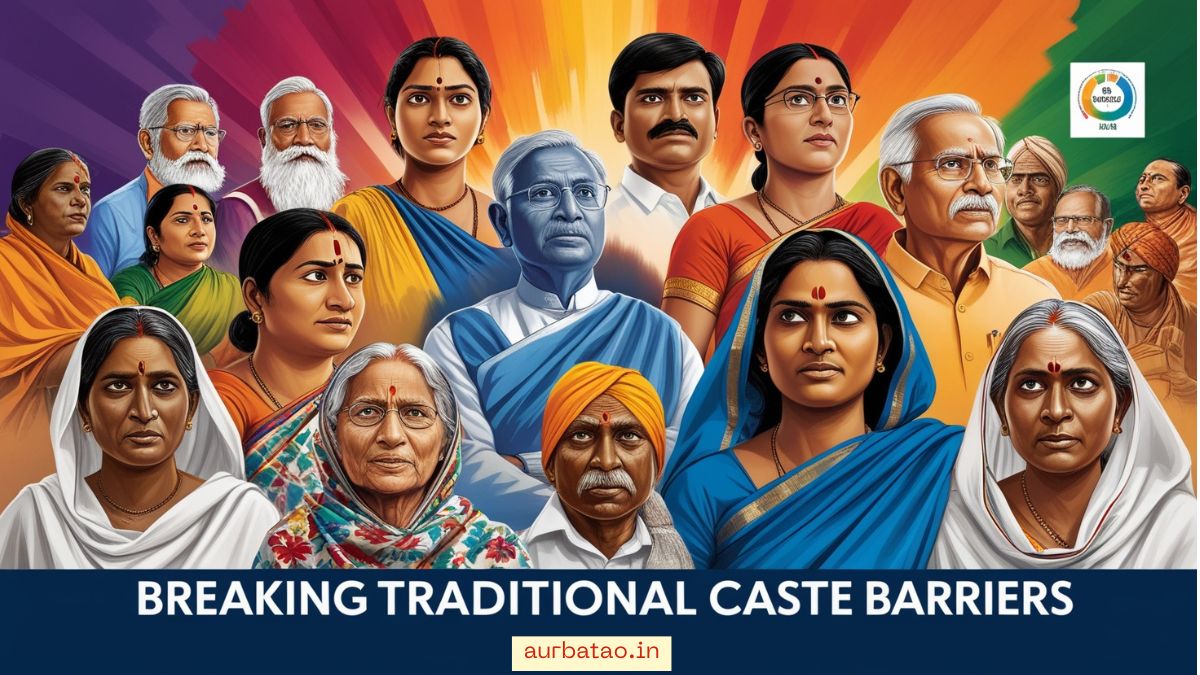The phrase “Saali aadhi gharwali” is a commonly used expression in certain parts of India, often in a lighthearted or joking manner. However, beneath its seemingly harmless surface lies a deeply rooted patriarchal mindset that reflects outdated and harmful views about gender relations. The expression, which translates to “Sister-in-law is like half a wife,” reinforces the idea that women are interchangeable objects or possessions within family structures. In this article, we will explore the cultural implications of this phrase, the impact it has on societal attitudes towards women, and why such expressions should be critically examined and challenged.
Understanding the Phrase: “Saali Aadhi Gharwali”
The phrase “Saali aadhi gharwali” roughly implies that a woman’s relationship with her brother-in-law (her sister’s husband) is akin to that of a wife. The phrase is often used in a teasing or humorous context, where men joke about the closeness between brothers-in-law and sisters-in-law. However, this casual remark has deeper, troubling connotations rooted in patriarchal norms.
At its core, the phrase treats the sister-in-law (saali) as an extension of the wife (gharwali), emphasizing a view of women as being subordinate to or possessions of male relatives. It undermines the individuality and autonomy of women, suggesting that their worth is linked to their roles in a man’s life rather than their personal identity or achievements.
Patriarchal Underpinnings of the Expression
To understand why this phrase is problematic, it is essential to first recognize the patriarchal context in which it thrives. Patriarchy, a system of social organization where men hold primary power and authority, has historically shaped many cultural practices, expressions, and norms in societies around the world, including in India.
In a patriarchal system, women are often seen through a utilitarian lens—valued primarily for their roles as wives, mothers, or daughters. This mindset perpetuates the idea that women exist in relation to men and that their worth is defined by how they serve or support male-centric family structures. The expression “saali aadhi gharwali” mirrors this by positioning women in a way that undermines their independence and individuality.
By calling a sister-in-law “half a wife,” the phrase trivializes the sister-in-law’s role and reduces her to merely an extension of the male protagonist’s life. It assumes that a woman’s identity is secondary to her familial relationships with men, diminishing her autonomy.
The Objectification of Women
One of the most troubling aspects of the phrase is how it reinforces the objectification of women. Objectification occurs when people are reduced to mere objects, often stripped of their humanity and individuality. In this case, the phrase reduces women to roles defined by their relationships with men, rather than seeing them as complete individuals with their own desires, ambitions, and identities.
The concept that a sister-in-law is “half a wife” suggests that women are possessions or commodities, and that their value is dependent on their proximity to men. This concept is not limited to language—it extends to how women are treated in various aspects of life, including in marriage, family dynamics, and societal expectations. The use of such phrases creates a ripple effect that perpetuates gender inequality by normalizing the objectification of women.
The Harmful Effects on Gender Equality
Expressions like “saali aadhi gharwali” contribute to the larger issue of gender inequality in society. They shape how both men and women perceive the roles and rights of women within familial and social settings. This phrase, although seemingly playful, suggests that women are subordinate, and it encourages both men and women to accept these power dynamics as normal.
In patriarchal societies, these subtle yet pervasive messages often go unnoticed or are dismissed as innocent jokes. However, they work to reinforce deeply ingrained gender roles, where women are expected to be submissive, accommodating, and always in service to the needs and desires of men. When such phrases are accepted without challenge, they maintain a system of inequality that prevents women from achieving true autonomy, both in their personal lives and within the larger societal framework.
Why Such Expressions Should Be Challenged
It is essential to critically examine and challenge phrases like “saali aadhi gharwali” for several reasons:
- Promoting Gender Equality: Language plays a significant role in shaping cultural attitudes and beliefs. By challenging gender-biased expressions, we can move closer to a more equitable society where men and women are viewed as equals, both in terms of their roles in the family and in society at large.
- Protecting Women’s Dignity: Such expressions undermine the dignity of women by objectifying them. Challenging these sayings is a way to protect the integrity of women’s identities and ensure that they are respected as autonomous individuals.
- Encouraging Respectful Relationships: If we move away from these outdated expressions, we can foster more respectful and healthy relationships between men and women, based on mutual respect and equality, rather than dominance and subordination.
- Reevaluating Cultural Norms: By questioning such phrases, we begin the process of reevaluating and updating cultural norms that no longer serve the needs of a progressive, fair, and inclusive society.
Moving Toward a More Inclusive Language
While it’s important to recognize the roots of such expressions, it’s equally important to actively seek alternatives that promote respect and inclusivity. Language has immense power to shape our thoughts and perceptions. By opting for language that empowers women and emphasizes equality, we can start to dismantle the entrenched gender biases that still persist in many cultures.
Instead of using phrases that objectify or diminish women, we should encourage expressions that celebrate their individuality, strength, and autonomy. Conversations about relationships, whether familial or romantic, should focus on mutual respect, collaboration, and understanding, rather than power imbalances or ownership.
Conclusion
The phrase “saali aadhi gharwali” is a reflection of a patriarchal mindset that continues to shape our cultural norms and expectations. Though it may be used in jest, it carries harmful implications about gender roles and the objectification of women. As we continue to evolve as a society, it is crucial that we examine and challenge such expressions, promoting language and attitudes that respect the dignity, autonomy, and equality of women. Only through these conscious efforts can we begin to dismantle the deeply entrenched gender inequalities that persist in our society and create a more just and equal world for all.


